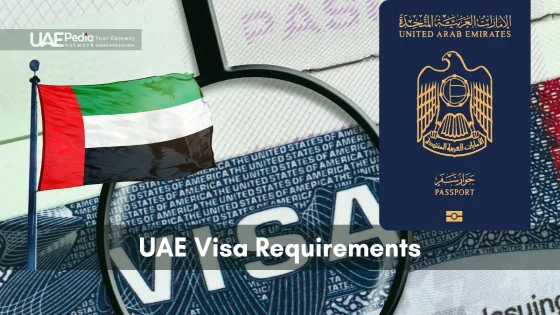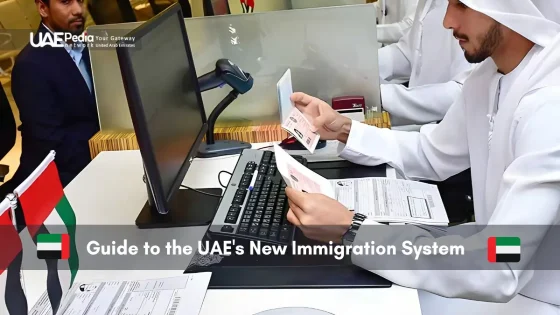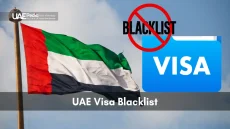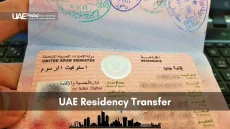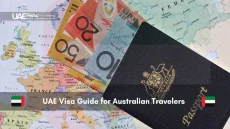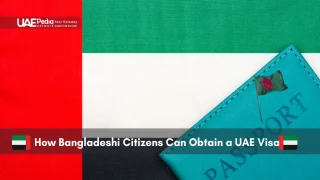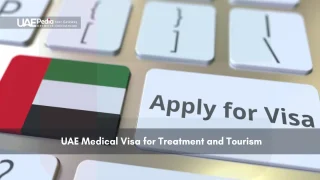What if a single plastic rectangle could unlock healthcare, banking, and even regional travel? Across sun-drenched cities and desert communities, residents carry a small but mighty tool that simplifies daily life while anchoring their legal status. This isn’t just bureaucracy—it’s your golden ticket to thriving here.
We’ve watched newcomers juggle paperwork panic until they secure this essential credential. Think of it as a backstage pass: government offices, medical facilities, and financial institutions all require it. Even crossing borders within the Gulf Cooperation Council becomes smoother with this key in your wallet.
The process? Surprisingly straightforward when you know the steps. Recent updates let applicants blend online convenience with in-person verification—no more endless queues. We’ll walk you through timing your submission, avoiding common snags, and using your new card to access everything from metro rides to e-government portals.
- Discover how this credential protects your identity while simplifying transactions
- Learn why applying early saves headaches during visa renewals or job changes
Understanding the Importance of the UAE Emirates ID Card
This small piece of tech does more than prove who you are—it’s your all-access pass. We’ve watched neighbors breeze through airport gates while others fumble with paperwork, all because they understood its significance early. Mastering its uses transforms daily errands into seamless experiences.
Your Daily Life, Supercharged
Need to register electricity? Enroll kids in school? The process takes minutes, not days. One friend recently opened a bank account during her lunch break—no stacks of documents, just a quick scan. “It’s like having a VIP lane everywhere,” she laughed.
Keys to the Kingdom
From prescription refills to mortgage applications, this tool bridges physical and digital worlds. Biometric security means fewer fraud worries. Travelers appreciate breezy border crossings—flash the card, skip the interrogation. Recent upgrades even let you vote in community elections remotely.
Fun fact: Over 94% of public sector transactions now accept it as sole verification. That’s trust built into plastic. Next time you’re stuck in line, remember—this little rectangle could’ve saved the trip.
UAE Emirates ID card Eligibility for Nationals and Expats
Whether you’re a local or a newcomer, proving who you are here requires a mix of old-school papers and futuristic scans. Let’s unpack what you’ll need before hitting that application center.
Paper Trail Meets Digital Proof
Start with the basics: valid passport copies (even that childhood photo page) and your current residence visa. First-time applicants often forget the application form—download it fresh from official portals to avoid outdated versions. One Dubai-based teacher shared: “I brought last year’s form by mistake and had to redo everything—lesson learned!”
Now for the tech part. Biometric collection—fingerprints and facial scans—isn’t sci-fi anymore. This secure process locks your identity into the system, reducing fraud risks. Pro tip: Skip hand creams on appointment day—dry fingers scan better.
Local vs. Newcomer Nuances
While everyone needs core documents, slight variations exist:
- Citizens: Family books replace visas as residency proof
- Expats: Recent visa stamps required (within 60 days)
- Both: Original passports for verification, even if copies are submitted
One Abu Dhabi nurse noted: “My hospital handled my paperwork, but I still needed to present my passport in person.” Whether born here or newly arrived, that plastic credential becomes your silent partner in accessing everything from metro cards to mortgage approvals.
Step-by-Step Application Process
Ready to unlock your digital identity? Let’s map out your application journey. Whether you prefer clicking buttons or chatting with helpful staff, two paths lead to success. Grab your paperwork—we’ll handle the rest.
Applying Online via the ICA eServices Portal
Start by creating an account on the government’s ICA portal—think of it as your digital passport office. First-timers often stumble here: “I used my work email initially,” shares a Dubai expat, “but switched to personal after realizing renewal reminders go there.” Once logged in, the application form auto-fills basic details if you’ve previously used visa-related services.
Upload scans of your residence visa and passport—pro tip: name files clearly like “JohnDoe_Passport.pdf”. Payment portals accept major cards, though some travelers report success with Apple Pay. One mom in Abu Dhabi shared: “I completed everything during naptime—even the fee payment!”
Offline Application at Authorized Centers
Prefer face-to-face help? Typing centers handle document checks and submissions. Bring originals plus copies—staff compare them on the spot. A Sharjah teacher advises: “Go early afternoon; morning rushes are real.”
Both methods require biometrics collection. This quick scan captures fingerprints and facial data, locking your unique identity into the system. Recent upgrades mean centers now use touchless scanners—no more ink smudges!
Collecting and Submitting Biometric Information
Imagine walking into a sleek government center where your fingertips become the key to your new life. This 10-minute ritual transforms your unique physical traits into digital safeguards—far more personal than any password.
Fingerprint and Facial Recognition Setup
The process feels like something from a spy film—minus the drama. You’ll place each finger on a scanner while staff guide you through positioning. “I thought it’d take forever,” shares a recent applicant from Dubai, “but the whole scan took less time than brewing coffee.”
For facial recognition, look straight into the camera with natural lighting. Avoid heavy makeup or accessories that cast shadows. Pro tip: Skip hand lotion beforehand—dry fingers capture clearer prints.
Ensuring Data Accuracy and Security
Your biometric details get encrypted before entering secure government databases. Multiple checks occur during capture: technicians verify image clarity while software detects inconsistencies. One Abu Dhabi resident recalls: “They re-scanned my thumb when the first image looked blurry—proof they care about precision.”
Advanced systems prevent unauthorized access through:
- 256-bit encryption matching military standards
- Automated deletion of temporary files post-verification
- Multi-factor authentication for employee access
This meticulous approach means your information stays protected while streamlining access to essential services. Need help prepping? Our detailed application guide walks you through every step.
Processing Times and Urgent Service Options
Picture waiting for your favorite coffee order—except this brew unlocks your entire life here. Processing timelines balance speed and precision, letting you choose between standard pacing or express lanes when deadlines loom.
Standard Processing: The Steady Stream
Most applications glide through in 7-10 business days. Think of it like airport security during off-peak hours—predictable and methodical. A Dubai resident shared: “I submitted on Monday and received my SMS pickup notice the following Wednesday—no stress.”
Express Lane Access: When Time Crunches
Need it faster? Expedited services deliver in 2-3 days for an extra fee. Ideal for last-minute job offers or travel plans. Fees vary but often match the urgency—like paying for priority boarding.
Three factors influence timelines:
- Document clarity: Blurry scans trigger verification delays
- Biometric data matches: Mismatched fingerprints mean re-scans
- Residence visa status: Renewals process quicker than first-time requests
Pro tip: Apply 3 weeks before critical needs like banking deadlines. Missed a step? Updated checklists help avoid fines for expired credentials. Whether you stroll or sprint, the finish line stays clearly marked.
Navigating Home Delivery Versus In-Person Collection
Your morning coffee order holds hidden wisdom—do you grab-and-go or linger at the counter? Similarly, receiving your essential credential offers two paths. Let’s explore which suits your rhythm better.
Benefits of Home Delivery
Picture this: your credential arrives while you’re drafting emails. No commutes or waiting rooms. A Dubai-based project manager shared: “I scheduled delivery during lunch—signed, scanned, back to work in 90 seconds.”
Home service shines for:
- Professionals juggling back-to-back meetings
- Parents managing school pickups
- Travelers prepping for regional trips
Steps for Pickup at Designated Centers
Prefer hands-on control? Authorized centers provide certainty. Follow this checklist:
- Track application status via SMS alerts
- Bring original passport for verification
- Visit during off-peak hours (2-4 PM weekdays)
| Delivery Option | Time Frame | Cost | Best For |
|---|---|---|---|
| Home Service | 2-3 business days | AED 30 | Urgent needs, tight schedules |
| Center Pickup | Immediate | Free | Document verification lovers |
| Typing Center Assistance | 1-2 days | AED 50 | First-time applicants |
Typing centers bridge both worlds—they handle paperwork and suggest optimal collection methods. One Abu Dhabi resident noted: “The staff recommended home delivery when they saw my work travel dates.”
Whether you crave doorstep convenience or in-person assurance, both paths lead to the same destination. Choose based on your calendar’s tempo and peace-of-mind preferences.
Costs and Validity Periods for the Emirates ID Card
Consider this your financial roadmap for securing one of the Gulf’s most crucial credentials. While the benefits shine bright, understanding fees and expiration dates ensures you never hit bureaucratic speed bumps. Let’s decode the numbers behind this essential lifeline.
Fee Structures for Nationals and Expats
Your wallet’s impact depends on citizenship status. Nationals enjoy subsidized rates—think of it as a hometown discount. Expats pay slightly more, but still reasonable compared to global identity document costs. A Dubai resident shared: “Renewing felt like paying for a premium streaming service—except this subscription opens actual doors.”
| Applicant Type | Standard Fee | Express Fee | Validity Period |
|---|---|---|---|
| Citizens | AED 100 | AED 300 | 5-10 years |
| Expats | AED 270 | AED 400 | Visa duration |
Pro tip: First-time applicants often miss the AED 20 knowledge fee—a small surcharge supporting government innovation funds. Payment receipts become golden tickets during renewals, so store digital copies in cloud folders.
Validity Durations and Renewal Cycles
Your credential’s expiration date dances with visa timelines. Citizens enjoy decade-long validity for adults, while children’s cards renew every 2-3 years. Expats? The clock starts ticking from residency approval dates. “Mine expired two weeks before my visa,” recalls an Abu Dhabi teacher. “Now I set dual reminders!”
Renewal requires three key documents:
- Current passport with valid residence visa
- Previous identification card copy
- Payment confirmation for latest fees
Late renewals incur AED 20-1000 penalties—like forgetting library books but with higher stakes. Budget-conscious applicants time submissions 30 days before expiration. Need help tracking? Our free calendar tool sends nudge alerts.
Whether you’re budgeting for initial costs or planning renewals, these details keep your access uninterrupted. As locals say: “A dirham saved today prevents headaches tomorrow.”
Smart Features and Advanced Security Measures
Think of your essential credential as a digital vault—its layers of protection rival top-tier cybersecurity systems. The advanced security measures woven into its design turn everyday interactions into fortress-secured exchanges.
Biometric Integration and Embedded Chip Technology
Your fingerprint isn’t just a unique identifier—it’s the first gatekeeper. Scans convert biological details into encrypted code stored on a tamper-proof chip. “It’s like having a fingerprint lock on your wallet,” notes a Dubai-based tech analyst.
The chip holds:
- Encrypted biometric templates
- Digital signatures for e-government services
- Expiry alerts tied to visa status
Multilayered Security to Prevent Counterfeiting
Counterfeiters face a maze of defenses. Holographic overlays shift colors under light, while laser-engraved personal details resist alteration. Annual updates add new verification markers—staying ahead of forgery tech.
Three-tier encryption protects data during transactions:
- Dynamic authentication codes for each scan
- Physical RFID shielding against wireless skimming
- Self-destruct protocols if tampering occurs
The federal authority identity system cross-checks every access request. One Abu Dhabi banker shared: “We see attempted fraud drop by 83% since adopting these protocols.” From airport gates to ATMs, your data stays guarded like crown jewels.
Extra Tips for a Smooth Emirates ID Application
Smooth applications aren’t luck—they’re built on dodging common traps even seasoned applicants miss. We’ve seen rushed forms and smudged fingerprints turn quick tasks into month-long sagas. Let’s turn those “oops” moments into confident checkmarks.
Form Fumbles and Document Disasters
One Abu Dhabi engineer learned the hard way: “I used blue ink instead of black—they sent me back to redo everything.” Always download the latest application form—old versions lack critical fields. Pro tip: Print two copies in case coffee stains strike.
Missing documents? That’s the top delay culprit. Create a physical folder with:
- Passport copies (every page, even blanks)
- Recent visa stamp with clear dates
- Digital payment confirmation printouts
Biometric blunders haunt many first-timers. A Dubai teacher shared: “My scans failed because I forgot to remove henna.” Schedule fingerprint sessions when hands are clean and dry—skip lotions and temporary decorations.
Timing Tricks to Bypass Fines
Submitting early isn’t just wise—it’s wallet protection. Late renewals rack up daily penalties faster than parking tickets. Set reminders 45 days before expiration using phone alerts or sticky notes on your fridge.
Need same-day service? Triple-check requirements first. Express slots fill fast, and missing one item means losing your priority spot. As government offices say: “Be early, be complete, be out the door.”
Accessing Critical Government, Financial, and Travel Services
Imagine breezing through bank queues and border controls with a single swipe—no paperwork panic, just smooth sailing. This credential transforms tedious processes into quick taps, whether you’re securing a mortgage or boarding a flight to Muscat.
How the Emirates ID Simplifies Banking and Visa Processes
Need to open a bank account? One Dubai resident shared: “I walked into a branch with just my passport and credential—had approval before finishing my latte.” Financial institutions now use embedded chips to verify identities instantly, slashing approval times for loans and credit lines.
Crossing borders within the GCC feels like using a fast-pass. Automated gates scan your details, bypassing lengthy immigration lines. Recent data shows 78% of regional travelers using this method save 40+ minutes per trip.
| Service | Requirements | Time Saved |
|---|---|---|
| Opening bank accounts | Credential + passport | 2–3 days |
| Visa renewals | Digital application + biometrics | 5 business days |
| GCC travel | Pre-registered details | 15–30 minutes |
Government portals thrive on this integration too. Pay traffic fines or renew licenses in three clicks—no more office visits. “It’s like having City Hall in your pocket,” laughs an Abu Dhabi freelancer who files taxes between client calls.
Pro tip: Link your credential to banking apps for one-tap approvals on transactions. Just remember—this little powerhouse works best when updated before expiration dates!
Final Thoughts on Securing Your UAE Emirates ID Card
Your key to modern Gulf living isn’t a magic phrase—it’s smarter than that. We’ve walked through every step: gathering documents, nailing biometric scans, and unlocking advanced security features. Think of it as building a digital bridge between you and seamless daily experiences.
Timing matters most. Renew three weeks before expiration dates to dodge service interruptions. Bookmark the federal authority’s portal for real-time updates—their checklists prevent last-minute scrambles. One Abu Dhabi resident shared: “Setting phone reminders saved me from late fines when work trips overlapped renewal windows.”
Need to access banking or cross borders? This credential serves as your backstage pass. Link it to apps for instant verification during transactions. Lost cards get replaced faster when you report immediately through official channels.
Keep these final tips close:
- Store digital copies of payment receipts and application confirmations
- Update contact details with authorities when moving homes
- Share residency proof effortlessly during visa renewals or job changes
Securing this document transforms “I need to get it done” into “Done.” Whether you’re settling in or planning long-term, that plastic rectangle holds the power to simplify your Gulf journey. Ready to claim yours?
No—the identification card is mandatory for banking services. Banks require it to verify residency status and comply with federal regulations. Temporary accounts may be possible with a passport and visa copy, but full access needs the physical card.
Late renewals incur fines up to AED 300 plus processing delays. Your ID links to residency visas, so letting it lapse risks penalties on both. Set reminders 30 days before expiry to avoid service disruptions.
Yes. Newborns and minors require their own cards, even if listed on a parent’s residency visa. Applications for under-15s skip fingerprint scans but still need facial recognition and passport details.
While Gulf Cooperation Council citizens enjoy visa-free travel, accessing government services like healthcare or property registration requires the Emirates ID. It’s issued through the Federal Authority for Identity and Citizenship (ICA).
Report the loss via the ICA app or website first. Then apply for a replacement with your original passport and a typed application form from an authorized typing center. Fees apply, and urgent processing speeds up reissuance.
For UAE nationals, yes—it’s accepted instead of a passport for regional travel. Expat residents still need their passport and residency visa for cross-border movement, even within Gulf states.
The secure chip stores biometric data like fingerprints and digital photos, enabling instant verification at airports, hospitals, and government offices. It also prevents counterfeiting and identity theft through encrypted layers.
Absolutely. Visit an ICA service center or use the eChannels portal to submit proof of address changes. Updating marital status, job title, or other details follows similar steps with supporting documents.


